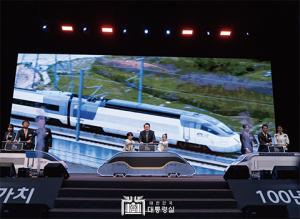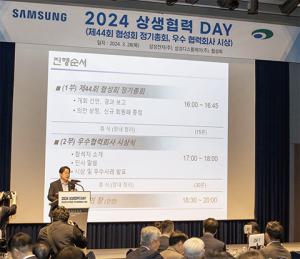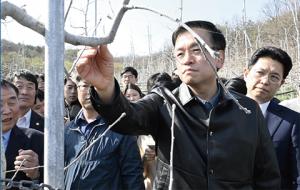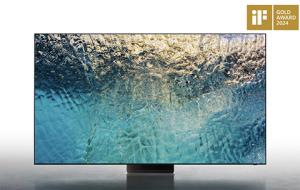 |
| ▲ 도산 아카데미 강석진 이사장, 전 GE-Korea 회장 |
지식기반경제의 패러다임 변화, 4차산업혁명
사람중심 지식생산성 경영에서 해법을 찾다
도산 아카데미 강석진 이사장, 전 GE-Korea 회장
지금 세계정세는 그 어느 때보다 거친 격랑의 소용돌이 속에 있다. 영국은 유럽연합으로부터의 탈퇴를 결정했고, 눈부신 경제성장을 이룬 중국은 세계적인 경제대국으로의 도약을 준비하고 있다. 또한 고도로 발달한 정보통신기술(ICT)과 오늘의 사물인터넷(IOT)은 제조업과의 융합을 통해 새로운 ‘제4차 산업혁명’의 물결을 오늘의 세계에 불러일으키고 있다. 한치 앞의 미래도 가늠하기 힘든 이 시대에, 한국은 그야말로 커다란 ‘위기’와 ‘기회’의 갈림길에 직면해있다. 이에 이번호 <월간 파워코리아>에서는 GE-Korea의 회장을 21년간 역임 하면서 글로벌 경영(Globalization)의 선진모델을 개척하였으며, 가치창조경영의 새 지평을 열어온 강석진 회장을 만나 우리에게 닥친 위기를 기회로 바꾸는 방법과 앞으로 대한민국이 걸어가야 할 길은 무엇인지 들어봤다.
세계화경영 개척과 지식경영에 혼신을 다해 왔던 전 GE-Korea 강석진 회장의 제언
강석진 회장은 20년간 GE-Korea를 경영했던 시기에 앞서가는 글로벌 경영의 모델을 개척하고 성공시킨 인물로 알려져 있다. 세계경영계에 글로벌 경영의 개념이 없었던 80년대 초, 그는 GE-Korea의 CEO를 맡으면서 당시 자신의 경영이념 이였던 세계화경영의 전략계획을 만들어 한국에서 실행하였다. 오늘날의 글로벌 경영의 표준이 된 현지 기업들과의 전략적인 제휴와 장기적인 파트너쉽 구축, 경영의 현지화를 당시 GE-Korea에서 추진하였다. 또한 모든 조직 구성원들을 인격적으로 존중하며 그들의 지식과 아이디어를 존중하는 사람중심 경영을 실행하였으며, 그 결과 모든 조직구성원들이 회사의 비전과 가치관을 공유하면서 스스로 울어 나오는 주인의식과 함께 모든 열정을 쏟을 수 있게 하였으며, 그 결과 고객의 신뢰와 만족을 이끌어내는 가치창조의 경영방식을 실행하였다. 그 결과 세계화 경영이 핵심과제가 되었던 90년대 초에 당시 잭 웰치 GE회장은 GE-Korea의 현지화 경영방식을 GE 전체의 세계화경영의 모델로 선택했었다.
2001년 그가 잭 웰치와 함께 GE에서 은퇴한 후 당시 한국의 대표적인 전문경영자들과 경영학분야의 석학들과 함께 선진경영의 지식과 체험을 이를 필요로 하는 국내의 중견중소기업과 벤쳐기업들의 경영자들에게 전수해주는 사회적인 사명감을 실천 하기위해 CEO Consulting Group을 공동으로 설립하고 선진 경영의 경험과 지식을 경영계에 전수하는데 온 힘을 쏟아 왔다. 경영학계의 세계적인 석학인 네델란드 대학의 죠셉 케셀 경영대학장과 서울대의 조동성 경영대학장의 설득으로 강석진 회장은 2007년부터 8년간을 네델란드의 트웬테 대학에서 GE의 최첨단 경영사례와 한국의 대표적인 기업들의 성공 사례를 중심으로 경영의 리더쉽과 조직문화, 지식의 생산성과 가치창조의 상관과계에 관한 새로운 연구분야의 학술 연구를 했다. 이러한 장기적인 노력의 결과 289 페이지에 달하는 방대한 학술연구논문을 2015년에 완성하여 세계 지식자산으로 등록되었으며 이로 인해 네델란드의 트웬테 대학으로부터 경영학 박사학위도 수여받았다. 다른 한편으로는 이러한 학술연구의 계념과 최첨단 선진경영의 경험을 바탕으로 오늘의 첨단 지식경제 시대에 한국의 경제와 경영계가 가야할 방향에 대해 경영계와 학계에서 많은 강의를 해 왔다. 이처럼 누구보다 세계정세를 꿰뚫어 보는 눈이 뛰어난 분이기에 오늘날 한국의 경제가 직면 하고 있는 불확실한 세계경제의 현실과 위기를 극복할 수 있는 그가 설명하는 방안을 귀담아 듣지 않을 수 없는 것이다.
다가오는 4차 산업혁명에 효과적인 대처를 위해 우리 사회 전체의 근본적인 변화 필요
한국산업의 차별화된 첨단기술력 확보와 창조적인 융합을 위한 열린사회 구축 과제
‘제2의 한강의 기적’을 위한 밑그림을 그리다
강석진 회장은 지금까지 산업구조의 변화를 불러온 1차, 2차, 3차 산업혁명과는 달리 첨단 정보통신기술과 사물인터넷을 바탕으로 한 초융합 시대가 가져올 ‘4차 산업혁명’은 우리의 선택과는 상관없이 오게 될 것 이며, 오늘 날 한국의 관료적이고 벽이 많은, 형식과 전통에 집착하는 사회문화로서는 새로운 ‘4차 산업혁명’에 적응하기가 어려우며 우리에게는 엄청난 위기로 다가 올 것이라고 했다. 우리는 가장 신속하게 사회 모든 분야가 상호 벽이 없는 열린 소통과 교류를 통해 창조적인 융합을 할 수 있는 새로운 사회문화, 민간부문과 공공부문, 다양한 산업 분야와 문화부문 등 우리 시회의 모든 분야가 상호 열린 소통을 할 수 있고 창조적인 융합을 통해 새로운 미래를 개척하면서 상생 할 수 있는 새로운 사회문화를 신속히 구축하여 4차산업혁명을 제2의 한강의 기적을 성취 할 수 있는 새로운 도약의 기회로 만들어야 한다고 했다. 이 시대에 우리에게는 다른 선택의 여지가 없으며 우리 사회의 모든 분야가 열린 소통을 할 수 있고 상호 창조적인 융합을 할 수 있는 열린 사회문화를 신속히 구축해야 하며, 그렇지 못할 경우 우리 앞에 다가오고 있는 4차산업혁명은 우리에게 엄청난 위기가 될 것이라고 했다.
강 회장은 한국이 4차 산업혁명에 효과적으로 대처하기 위해선 우리의 사회구조 전체가 완전히 새롭게 변화되어야 한다고 말했다. 그는 산업간, 계층간, 세대간의 ‘벽’을 허물고 소통과 상생, 공존의 사회문화를 만들어가야 한다고 강조했다. 서로가 가진 지식과 정보가 융합되고, 자유롭게 생각과 의견을 표출할 수 있는 열린 사회문화가 자리 잡아야만 창조적인 융합이 가능하다는 것이다. 또한 이러한 창조적인 융합사회문화를 기반으로 4차 산업혁명을 받아들일 준비가 된다면 한국은 ‘제2의 한강의 기적’을 만들어낼 수 있을 것이라고 말했다.
한국이 ‘4차 산업혁명’을 새로운 도약의 기회로 만들어 제2의 한강의 기적을 이루기 위해서는 우리 사회의 모든 분야, 정부조직과 산업계와 시민사회 모두가 함께 참여하여 관료적이며 벽이 많은 전통과 고정 관념에 침착 하는 우리의 사회문화를 미래 지향적이고 혁신적이며 벽이 없는 열린 소통을 통해 창조적인 융합을 할 수 있는 열린사회 문화를 과감하게 재구축 하는데 국민모두가 함께 함께 동참 하도록 해야 한다고 강조했다.
이러한 시대적인 공동의 목표를 사회 전체가 함께 공유하도록 하기 위해 강회장과 우리 사회 각 분야 지도층 인사들이 함께 힘을 모아 ‘창조융합상생포럼’을 출범시키기 위한 준비를 하고 있다.
한국의 주력수출산업 생산의 기반이 되고 있는 첨단부품과 첨단소재 산업의 위기
정부 차원의 R&D 지원과 차별화된 첨단기술력 확보는 더 이상 지체 할 수 없는 시급한 과제
강 회장은 먼저 최근 빠른 변화를 보여주고 있는 세계 제2의 경제대국으로 급부상한 중국과의 협력관계를 명확히 재정립하는 것이 무엇보다 중요하다고 했다. 풍부한 저임금 노동력을 바탕으로 세계 대기업들의 생산기지 역할을 해 왔던 중국은 그동안 축적해온 산업기술력과 기초과학의 선진화를 이룩했으며 세계 시장의 1/3 규모를 차지하는 거대한 중국의 내수 시장을 바탕으로 중국산업과 기업들의 세계경쟁력은 눈부신 약진을 이루어 왔다고 했다. 그동안 우리나라의 수출산업에 있어서 대중국 수출은 미국을 넘어선 No.1 마켓으로 성장했습니다. 그러나 이러한 긍정적인 면과 함께 반드시 고려해야할 점은 중국의 많은 산업분야가 한국의 주력산업분야와 심각한 경쟁관계로 급부상하고 있다는 현실입니다”라고 지적했다. 실례로 조선산업 분야에서는 세계1위를 지켜오던 한국의 지위를 추월하고 있으며 한국의 조선산업은 심각한 위기에 처해 있는 상황이며, 이를 극복 하기 위해서는 차별화된 첨단 조선기술 확보가 시급한 과제다. 또한 한국의 주력수출산업 제품생산의 기반이 되고 있는 첨단부품과 첨단소재 산업 분야에서도 중국은 정부의 자국 산업 육성정책에 힘입어 기술력과 원가경쟁력에서 한국을 추월하고 있으며, 이로 인해 독자적인 R&D 능력이 부족한 한국의 첨단 부품 소재산업 분야의 중견 중소기업들은 생존의 위기에 처해 있는 것이 실제 현실이다. 이러한 위기에 대한 대응 정책과 전략에 대해 강 회장은 확고한 의견을 제시했다.
강 회장은 “독자적인 R&D 능력과 기술력과 부족한 중견·중소기업들의 경우 정부 차원의 확고한 지원이 없다면 심각한 생존의 위기에서 벗어 날 수가 없습니다. 그리고 한국경제의 허리와 다름없는 중견·중소기업의 위기는 산업 전체의 위기로 확대될 것이 분명하다”고 역설했다. 이러한 첨단 부품소재 산업의 위기를 해결하기 위해서는 한국의 대표적인 과학기술 연구단지인 대덕연구단지에 있는 국민의 혈세로 운영되고 있는 분야별 모든 과학기술연구소들의 연구원들이 R&D 능력과 기술력이 취약한 첨단 부품과 소재산업 분야의 중견중소 기업들과 밀착된 지원을 하면서 이들 기업들의 R&D 역할을 충실히 하도록 해야 한다고 했다. 강회장은 본인이 대덕연구 단지에 초청 연사로 수차 방문 하면서 연구원 원장들에게 이러한 제안을 하였으며 참석했던 연구원장들로부터 추진해 보겠다는 긍정적인 약속을 받기도 했지만 약속을 실행한 사례를 찾아 볼 수가 없었다고 했다.
그러던 중 다행이 박근혜 대통령이 선거 공약으로 한국의 중견중소 기업들을 독일의 히든 챔피언처럼 만들겠다는 선거공약에 감탄한 강회장은 박근혜 대통령의 취임식 전에 경총의 회장단과의 만난 자리에서 이 같은 공약의 실행을 위해서는 대덕과학단지 활용의 중요성을 건의 했으며 박근혜 대통령은 취임 후 두 차례나 대덕의 과학연구단지를 방문하여 정부출연 과학연구소들이 첨단 부품소재 분야 중견중소기업들의 R&D쎈터 역할을 하여 한국의 히든챔피언을 만들게 할 것이라고 선언을 했는데도 관련 정부 부처가 이 중요한 정책 과제를 여전히 실행하지 못하고 있다고 대단히 아쉬워했다. 이 공약사업은 박근혜 대통령의 남은 임기 중에 반드시 실행이 되어야 하며 그렇지 못할 경우 한국의 핵심 수출산업들의 허리 부분인 부품소재 산업이 중국과의 경쟁에서 무너지는 국가적 위기를 맡게 될 것 이라고 했다.
오늘의 지식경제시대에 경영리더들은 기업경영의 최종 목표인 가치창조 극대화를 위해
창조적인 높은 지식생산성 조직문화 구축을 최우선 과제로 해야 한다
강석진 회장은 기업의 가치창조를 성공적으로 성취하는 것은 경영자에게 주어진 가장 중요한 책임이며 의무라고 했다. 이를 위해서는 사람중심 경영리더십을 통해 지식생산성과 가치창조를 극대화 해야한다고 했다. 21세기 지식경제 시대의 경영자는 가치창조의 목표를 모든 조직구성원들과 ‘공동의 꿈, 공동의 비전’으로 함께 공유하면서 이 공동의 꿈인 가치창조 목표를 달성하기 위해서는 모든 조직구성원들을 인격적으로 존중하고 그들의 창조적인 지식과 아이디어를 존중하며 이를 가치창조 경영과 융합하여 함께 추구하는 ‘지식생산성 경영’, ‘사람중심 경영’의 리더가 되어야 한다고 강조했다. 강회장이 7년간의 학술연구에서 논문으로 정리한 가치창조 개념에는 1)매출과 순이익 성장 2)기업의 시장가치 증대 3)기업의 신뢰도와 이미지 상승 4)고객과 조직구성원의 만족도 향상 5)기업의 지속성장 능력 6)기업시민으로서의 사회적인 역할을 모두 포함하고 있다.
이처럼 조직구성원 모두의 꿈이며 공동의 목표인 가치창조 극대화를 함께 이룩하기 위해 조직구성원들의 창조적인 지식과 아이디어를 존중하며 이를 가장 효율적으로 경영에 적용하여 가치창조를 극대화하는 것을 지식생산성(knowledge productivity: KP) 경영개념으로 정리하고 있다.
경영자는 모든 조직구성원들의 지식과 아이디어를 활용하게 하는 창조적인 지식생산성 조직문화의 바탕이 될 수 있는 비관료적이고 상하 간, 부서 간의 벽이 없는 자유로운 열린 조직문화를 구축해야 한다. 이러한 열린 조직 문화 속 에서는 자유로운 상상이 가능하며 창조적인 새로운 아이디어를 개발 할 수 있게 되며 경영의 리더는 조직구성원들의 창조적인 지식과 아이디어를 발굴하고 그들의 지식과 아이디어를 직위와 소속에 상관없이 신속하게 경영에 반영하여 효율적으로 실행이 되게 하는데 모든 역량을 집중할 수 있도록 조직을 리더 해야 한다. 이러한 지식생산성의 실행 접근 방식은 기업경영 뿐만 아니라 국가와 공공기관의 경영에도 적용 될 수가 있다.
강회장은 21세기 지식경제시대 우리 앞에 다가오는 거대한 변화의 물결, 4차 산업혁명에 효율적으로 대응하기 위해 국가와 사회, 기업의 경영이 실천해야 할 방향을 우리에게 제시하고 있다.
강석진 회장은 경영자이며, 화가이자 또한 시인이기도 하다. 강회장은 ‘경영이란 하나의 종합예술’이라고 했다. 끊임없는 상상을 통해 창조적인 아이디어와 새로운 지식을 개발 하면서 이러한 지식과 아이디어를 소재와 작업과 융합함으로서 수천, 수만 배의 가치를 창조하는 종합예술이라고 했다. 대한민국의 도약을 위한 그의 밑그림의 구도가 완성 되었다. 이제는 각 분야의 리더들이 밑 그림의 구도에 채색을 할 차례이다. 격랑의 시대를 헤치고 미지의 대양으로 해쳐 나아갈 미래 대한민국의 모습을 기다려본다.
Change of Paradigm in Knowledge-based Economy, Fourth Industrial Revolution
Finding Solution in People-centered and Knowledge Productivity Management
Chairman of Dosan Academy and Former Chairman of GE-Korea Seok-jin Kang
The world situation today is caught in a maelstrom of unprecedented changes. England decided to secede from the European Union and China who accomplished brilliant economic growth is preparing to jump up to the level of major economic powers. Also, highly developed information and communication technology (ICT) and the Internet of the Things (IOT) is prompting a new wave of the ‘Fourth Industrial Revolution’ in today’s world through the integration with the manufacturing industry. No one is certain what may happen tomorrow and Korea is indeed in a serious situation of ‘crisis’ or ‘opportunity.’ For this, this edition of <Power Korea> interviewed Chairman Seok-jin Kang who pioneered the advanced model for globalization and opened up new horizon of the value creation management while leading GE-Korea as chairman for 21 years, asking how Korea may turn the crisis it faces into opportunity and the direction that Korea should take for the future.
Suggestion from Former Chairman of GE-Korea Seok-jin Kang who Devoted Himself to Pioneering Globalization and Knowledge Management
Kang is best known as the person who pioneered and succeeded a model for globalization during the period when he managed GE-Korea for over 20 years. He became the CEO of GE-Korea in the beginning of the 1980’s when the concept of globalization was not familiar to the international management circles and developed and implemented the strategic plan for globalization based on his own management philosophy which comprised strategic tie-up, long-term partnership with local companies, and localization of management at GE-Korea at the time, and these became the standards for globalization today. He also implemented the people-centered management which was to treat all members of the organization respectfully and respect their knowledge and idea, and as a result, he made all members of the organization share company’s vision and value, develop the sense of ownership by themselves, and passionately put all their efforts into their tasks; he realized the management approach leading to value creation while winning customer trust and satisfaction. As a result, Chairman of GE, Jack Welch adapted GE-Korea’s localization method as the globalization model for entire GE in the 1990’s when the globalization became the key task.
In 2001, Kang and Jack Welch retired from GE together and jointly established CEO Consulting Group with the refined professional managers and great scholars in the management field in Korea at the time to practice their social duties of transferring their knowledge and experience of advanced management to the managers of small and medium enterprises of middle standing and venture companies in Korea that needed them and have devoted themselves to the task. Following the recommendation of Joseph Kessel, the world-renowned scholar in the management circles and the President of the Business School of the University of Twente in the Netherlands, and Dong-seong Cho, the President of Business School of Seoul National University, Kang engaged himself in the academic research in a new research area; management leadership, organizational culture, and the correlation between the productivity of knowledge and value creation, centering on the cases of the advanced management of GE and the success of representative companies of Korea at the University of Twente in the Netherlands for 8 years from 2007. As a result of this long effort, he completed a lengthy 289 pages long research paper in 2015, which was registered as the World Intellectual Property, and he also received the Ph. D. in Business Management from the University of Twente in Netherlands with it. On the other hand, he has given many lectures in the management circles and academic circles on the direction that Korean economy and management circles shall take in today’s advanced Knowledge Economy Age based on the concepts he summarized through his academic research and the experience of implementing advanced management. For he has the insight into the world situations more prominently than anyone else, we need to listen to his words on how to overcome uncertainties in the world economy and the crisis that today’s Korean economy faces.
Fundamental Change Required in Entire Society to Effectively Cope with Coming Fourth Industrial Revolution
Develop Open Society to Secure Advanced Technology Unique to Korean Industry and Promote Creative Integration of Technologies
Making Rough Sketches for ‘Second Miracle on the Han River’
Kang said the ‘Fourth Industrial Revolution’ will be brought to us regardless of our choice by the advanced information and communication technology and the Internet of Things in the ultra-integration age unlike the First, Second, and Third Industrial Revolutions that have brought changes to the industrial structure, and it would be difficult to adapt to the ‘Fourth Industrial Revolution’ with Korea’s current bureaucratic and non-communicating social culture that sticks to formalities and traditions and it may become a great crisis for Korea. He said we need to turn the ‘Fourth Industrial Revolution’ into a new opportunity for growth to achieve the ‘Second Miracle on the Han River’ by developing a new social culture that enablescreative integration through mutual, open, and wall-less communication and exchange among all sectors of the society including private and public sectors, various industrial sectors, and cultural sectors and builds a new future through creative integration and promotes mutual growth. He also said we have no other choice in this age but to build an open social culture where all sectors of it can communicate openly and integrate with each other creatively and if we fail to do so, the ‘Forth Industrial Revolution’ can be a great disaster for Korea.
Kang said Korea needs a complete changeover of the social structure in order to cope with the Fourth Industrial Revolution effectively. He stressed that we need to pull down the ‘wall’between industries, classes, and generations and develop the social culture of communication, mutual growth, and coexistence. This means that the creative integration would become possible only when the open social culture that encourages us to integrate knowledge and information we have and express our opinions and thoughts freely. He also said that Korea will pull off the ‘Second Miracle on the Han River’ if it is ready to embrace the ‘Fourth Industrial Revolution’ based on this creative and integrative social culture.
He emphasized that the entire nation including all sectors of the society, government agencies, industrial circles, and the civil society shall boldly participate in rebuilding the open social culture that can embody creative integration by moving away from current social culture that has settled with and held fast to bureaucratism, non-communicating tradition, and fixed ideas through future-oriented, innovative, and wall-less open communication for Korea to turn the ‘Fourth Industrial Revolution’ into a new opportunity and pull off the ‘Second Miracle on the Han River.’
Kang and other leading figures of our society are making preparations to establish the ‘Creation, Integration, and Mutual Growth Forum’ in order to share the common goals of the times with the entire society.
Crisis in Advanced Parts and Materials Industries, Bases of Leading Export Industries and Production Industries of Korea
- State level support for R&D and securing differentiated and advanced technologies are pressing tasks
Kang stressed that the most important task is toreestablish the cooperative relationship with China which quickly emerged as the world’s second economic power and has recently undergone rapid changes. China has been the production base of the world’s conglomerates based on cheap and plentiful labor andhas also achieved the advancement of industrial technologies and basic sciences, and the worldwide competitiveness of Chinese industries and companies made brilliant progresses based on huge domestic market which accounts for 1/3 of the world market. For Korean export industry, China has grown in to the No.1 export market, pushing America aside. However, he pointed out that we should consider the reality that many industrial sectors of China are quickly becoming competitive against the key industrial sectors of Korea while there are positive aspects about China’s growth. In fact in the shipbuilding industry where Korea had maintained the top ranking for many years, China has overtaken Korea’s position and now Korea’s shipbuilding industry is faced with serious crisis and urgently needs to secure differentiated and advanced shipbuilding technologies in order to overcome the crisis. China has also been outplaying Korea in the advanced parts and advanced materials industries which are the bases for leading export industries and production industries in terms of technological strength and cost competitiveness due to Chinese government’s policy to promote its industry, and this has placed small and medium enterprises of middle standing in the advanced parts and materials industries lacking independent R&D capacity in the life or death situation. Kanggave a firm opinion on how to cope with such crises and which strategy to deploy.
Kang emphasized, "Small and medium enterprises of middle standing without independent R&D capacity and technological strength cannot overcome serious life or death situation if not firmly supported by the government. It is certain that the crisis of the small and medium enterprises of middle standing, the backbone of Korean economy,will evolve into the crisis of the entire industry." He also said, researchers of all science and technology research institutes of various fields in Daedeok Science Town, the representative science and technology research complex of Korea operated by the taxpayers’precious money, shall closely support small and medium enterprises of middle standing without independent R&D capacity and technological strength in the advanced parts and materials industries by fully acting as the R&D institute for such enterprises in order to resolve the crisis in the advanced parts and materials industries. Kang visited Daedeok Science Town many times as a guest speaker and made such suggestions to the heads of research institutes, andsome of them considered his suggestions positively and even promised to implement them. However, he has not seen a single case where his suggestion was embodied.
Fortunately, however, President Geun-hye Park made the election pledge to develop small and medium enterprises of middle standing into the hidden champions of Korea as those in Germany, and impressed by the pledge, Kang emphasized the importance of Daedeok Science Town in fulfilling the pledge at the meeting between President Geun-hye Park and Korea Employers Federation held before the inauguration. Later, he expressed his regret that the government agencies related with this matter could have not implemented this important policy task even after President Park visited Daedeok Science Town as many as twice after inauguration and declared that the science research institutes funded by government would act as R&D centers of small and medium enterprises in the advanced parts and materials industries to turn them into hidden champions of Korea. He said this policy commitment shall be fulfilled during the remainder of President Park’s term of office and if not, it will lead to a national crisis where the parts and materials industries, the backbone of Korea’s leading export industries, will lose the competition against China.
Business Leaders in Today’s Knowledge Economy Age Shall Primarily Focus on Developing Creative Organizational Culture for High Knowledge Productivity to Maximize Value Creation, Ultimate Goal of Corporate Management
Kang said the most important responsibility and obligation of a manager is to achieve corporate value creation successively, and this requires the knowledge productivity and value creation maximized through people-centered management leadership. He emphasized that the manager of the 21st century’s Knowledge and Economy Age shall become the leader of ‘knowledge productivity management’ and ‘people-centered management’ who treats all members of the organization respectfully, respects their creative knowledge and idea, and incorporates such knowledge and idea into the value creation management to work together to achieve the ‘Common Dream and Vision’, the value creation, which he or she shares with the rest of the organization. The concept of value creation that Kang summarized in his dissertation after 7 years of academic researchincludes all of the following; 1) Growth in Sales and Net Profit, 2) Increase of Company’s Market Value, 3) Enhancement of Corporate Reliability and Image, 4) Increase of External and Internal Customer Satisfaction, 5) Corporate Capacity for Sustainable Growth, and 6) Social Role as Corporate Citizen.
As explained, he summarized the concept of knowledge productivity (KP) management into the act of respecting creative knowledge and idea of the members of the organization and applying them to management most efficiently to achieve the maximization of value creation, the common dream and goal of all members of the organization.
The manager shall develop a non-bureaucratic, free,and open organizational culture without boundaries betweenranks and departments that can lay the foundation for a creative and knowledge-productiveoriented organizational culture that encourages the use of knowledge and idea of all members of the organization. This open organizational culture enables free imagination and develops creative new ideas, and the leader of management shall guide the organization in a direction that it concentrates all of its resources into discovering creative knowledge and idea of its members and applying their knowledge and idea to management promptly regardless of their rank and department in order to execute them efficiently. This approach for enhancing knowledge productivity can be applied not only to corporate management but also the management of state and public institutions.
Kangsuggests a direction that our country, society, and corporate management shall take in order to efficiently cope with the Fourth Industrial Revolution, the great wave of change coming toward us in the 21st century’s Knowledge Economy Age.
Kang is a manager, painter, and also poet. Kangsaid, ‘Management is a composite art which develops creative ideas and new knowledge through continuous imagination and integrates such knowledge and idea with materials and operations to create thousands of times greater values.’ The composition of the rough sketch for Korea’s advancement has been completed and now it is there for the leaders of various fields to paint on top of the sketch to complete the painting. We look forward to Korea getting through the turbulent age and sailing toward the unknown ocean.
정재헌 기자 jjh05220@naver.com







